#african diaspora and the world
Text
Throwback: Happy 85th Birthday, Fela Kuti!
Throwback: Happy 85th Birthday, Fela Kuti! @felakuti
The godfather of Afrobeat, Fela Kuti was born 85 years ago today. Although we tragically lost Fela 26 years ago from AIDS, since his death, his influence on contemporary global music has managed to grow exponentially with an increasing number of bands and artists across the world creating their own specific take on the genre — and sound — he created over 50 years ago.
Kuti’s work is bold and…
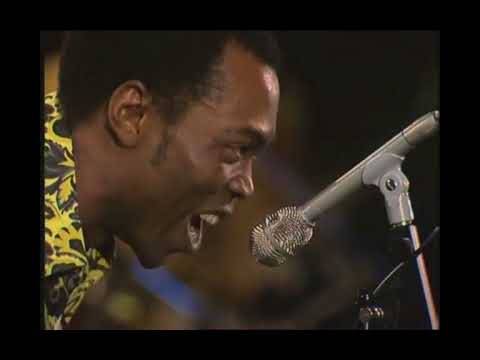
View On WordPress
27 notes
·
View notes
Text
.
#it's really sick how zionism has made people incapable of understanding politics in any way other than#'this is good because it's good for jews' or 'this is bad because it's bad for jews'#and totally disconnecting our experiences from those of any other oppressed group#that shit about how 'antisemitism is neither left nor right' or 'antisemitism works the opposite of all over forms of bigotry'#denying any connection between the nazis and settler colonialism#crying antisemitism when anyone tries to connect the nazis antisemitism to any other aspect of their ideology#the deeply pathetic fear and suspicion of all other marginalized groups/liberation movements#and apparently only understanding the narratives around our holidays#as simply 'jews won' or 'jews lost'#would not be surprised if they started whining that african diaspora xians relating to the exodus narrative is antisemitic appropriation#deeply twisted evil way to understand the world
4 notes
·
View notes
Text
Beautiful Black people,
We are yesterday, today, tomorrow, forever. Our lives matter all day, everyday, forever. Black History, Black Present, Black Future, Black Forever. We are forever. 24/7/365. Love y’all.😘💋🤎🤎🤎
Black Pride Forever🙅🏾♀️
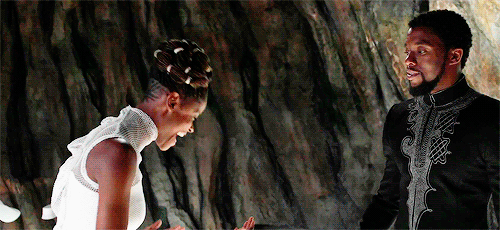
Shameless plug! Check out my review posts on “Eve’s Bayou” and “They Cloned Tyrone”!
#black history matters#black history is world history#black history#black creativity#black creatives#black love#african diaspora#what up fam#black unity#miscellaneous#jay#miscellaneous jay#doaom#black girls who blog#black girls of tumblr#blackgirlbloggers#blerd#black fandom#black culture#black history 24/7/365
5 notes
·
View notes
Text
.
#complicated situations complicated world there is context however.#saw someone claim that the tunisian jewish community didn't face antisemitism.#as a point about jewish diasporism and international jewish communities and antizionism#a quick google search will tell you that jews living in territories occupied by vichy france did not have a good time!#even before direct nazi invasion!#just because north african jews weren't all sent to concentration camps doesn't mean............#and that's not getting into the ways in which#yes#anti-israel sentiments can and have been taken out on jewish communities in the MENA region#feeding a vicious cycle#like. obviously it's complicated! but the fact that there is still a tunisian jewish community doesn't mean!#they have never faced violence!#ignoring the ways that wwii and the spread of nazi germany impacted jews in regions other than europe is. in fact.#a form of holocaust denial.#if we want to counter zionism we need to be accurate. even when reality is inconvenient or painful.#radical diasporism can and must reckon with the fact that#the feelings of fear and insecurity#the conviction that jews will never be safe in the diaspora#*come from somewhere*#and there is something to be said about how the israeli government worked with governments across the mena region to displace their#jewish populations#and what that says about zionism.#and there is something to be said about how the violence of the israeli state feeds antisemitism and contributes to violence against#diaspora jews#drafting us involuntarily into a war we don't want to fight.#and there are many things to be said about how the impact of the holocaust on mizrahi and sephardic jews#have been completely erased from historical narrative.#there are so many things to be said. and we have to say them. but we have to be able to confront the truth.#i am going insane over here.
6 notes
·
View notes
Photo
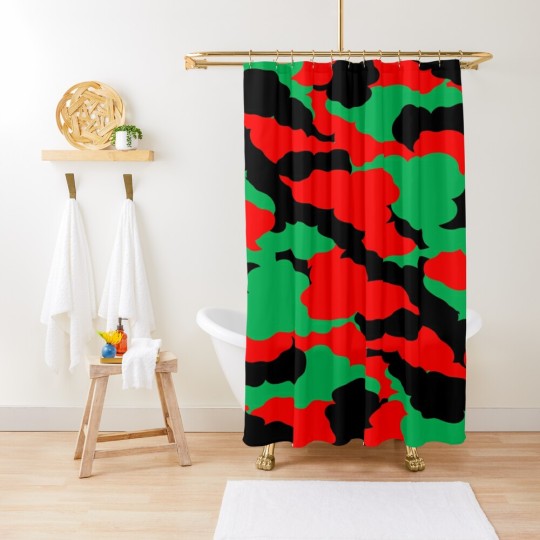

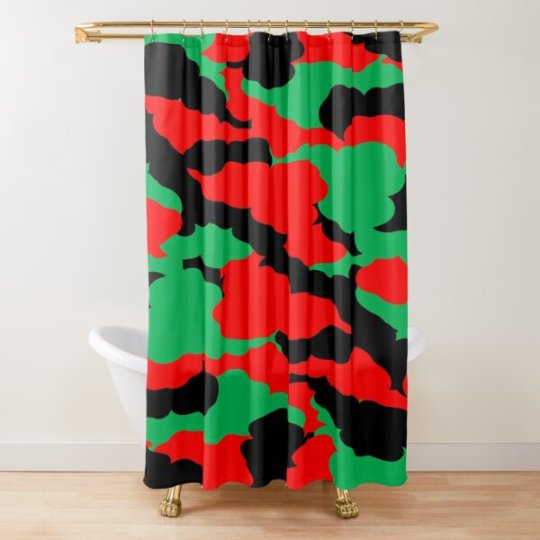

(via Pan Africa Shower Curtain by G.ROCHEL GORDON)
#findyourthing#redbubble#camoflauge#camo#diaspora#pan african#pan africa#red#black#green#USA#black americans#west indian#west indies#caribbean#new world#grochel
7 notes
·
View notes
Video
youtube
African Origin of Civilization
#black history facts#blackhistory#blackexcellence#black knowledge#african history#black history 365#black history is world history#panafrican#african diaspora#ancient civilizations
2 notes
·
View notes
Text
The Harsh Reality: The Never-Ending Mass Kidnappings in Northern Nigeria
by Levi Wise Kenneth Catoe Jr.

Nine years after Boko Haram abducted 276 students from a girls school in Chibok, 98 girls are still being held by Boko Haram, and a slew of abductions have taken place since, revealing the utter failure of the Nigerian authorities to learn from the heartbreak of Chibok and, ultimately, to protect children, Amnesty International is saying. As part of the BOSS mission to uncover stories that impact the African Diaspora that go unreported, we chose to dive into this conversation, as well as how it’s been allowed to persist this long. I sat down with an inside source from Nigeria who chose anonymity.
Levi Wise Kenneth Catoe Jr.: Hello how are you?
Anonymous Source: I’m well.
LWC: I have a question for you.
AS: Ok.
LWC: Why are there mass kidnappings plaguing Nigeria currently?
AS: That’s over ten years now and it happens frequently in the Northern part of Nigeria.
LWC: What is it about I’m not familiar with?
AS: It's this terrorist group, disturbing Nigeria for years now. But they're camped in this desert in Nigeria. So they abducted over 400 Chibok school girls killed most of them and got the rest pregnant. The group is called the ‘Boko Haram’. [Note: Boko Haram is usually translated as "Western education is forbidden". "Haram" is from the Arabic حَرَام (ḥarām, "forbidden") and the Hausa word boko (the first vowel is long, the second pronounced in a low tone), meaning "fake", which is used to refer to secular Western education.]
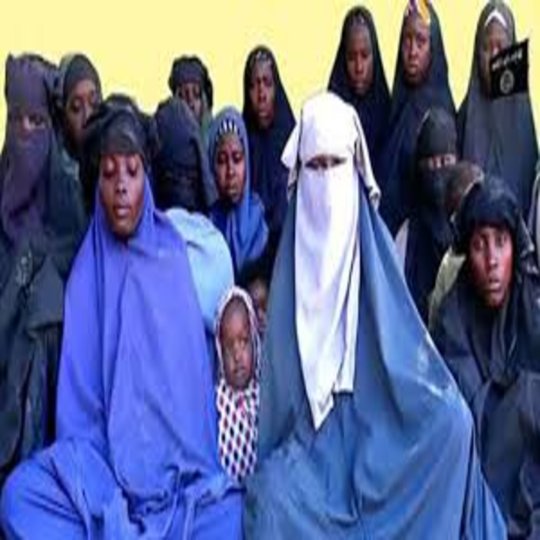
LWC: Are people in your country scared? Are they Black or Middle Eastern Muslim groups? And why does it still plague Nigeria?
AS: They're probably from Chad or Somalia but they're Muslims though and some evil Nigerian politicians are the ones funding them. The government backs them up.
LWC: So, are you scared or are Nigerians living in fear of them?
AS: They're not in Lagos. They are in northern Nigeria and our troops have them under control.
LWC: Oh, ok good to know as far as Lagos.
AS: It got to a stage when they abducted some American tourists. And the American government sent some elite groups to carry out the rescue mission. It was successful though.
LWC: Oh ok, I wasn't familiar until I read about the abductions today; I was under the assumption that this was all recent.
AS: They mainly target the Hausas. It's really deeper than you imagine.
LWC: As far as what the government involvement?
A: Yes, they're protected by most of our corrupt government.
LWC: But the government in northern Nigeria is separate from Lagos, correct right?
AS: Yeah, but the northerners have the highest power in Nigeria.
LWC: OK now I see.
AS: That's one of our biggest problems in the country now. They feel like they own the country. And the Muslims so just imagine how brutal they'll be.

LWC: So the government feels they own the city or the Muslims?
AS: The Muslims do.
LWC: Oh, so in your opinion the Muslims own the country of Nigeria?
AS: Yes, it’s the Muslims that own the government and both Christians and Muslims are doing their very best to destroy the economy of Nigeria.
Levi Wise Kenneth Catoe Jr.
Editor, BOSS, NY
If you can, please consider supporting us just once from $1, or better yet, support us every month with a little more. Thank you.
contact me at [email protected]
We at BOSS are also interested in partnerships:
contact me at [email protected]
#black history#nigeria#Chibok school girls kidnapping#boko haram#world news#breaking news#news updates#al jazeera english#african diaspora#west africa#news of the world
0 notes
Note
- Sephardi Jew here. Thank you for your posts concerning Palestinian Jews. Jewish people who are ethnically North African/West Asian are consistently left out of these conversations. Make no mistake - the word "Mizrahi" was invented by Israel to literally strip Palestinian Jews of their identities during the beginning of the occupation. The message was to either assimilate with the Ashkenazi, or die as a Palestinian. The entire reason people struggle to find resources about the history of Palestinian Jews is because it has been purposefully obscured by the occupation. While I am not Palestinian, (that I know of, the other funny thing, diaspora members of the Sephari community often have trouble pinning down our exact heritage, I'll let you guess why) my ethnic background is Moroccan, Libyan, Maltese. Jews from the Iberian Peninsula and Mediterranean Sea have always been here, will continue to be here. You don't have to answer this publicly or anything, btw, I just really try to reach out to people who elevate the voices of the Jewish people from this area of the world. It profoundly touches my heart.
of course, no need to thank me. an aspect of the occupation is a lot of palestinian jews have been erased from palestinian history which is pretty heartbreaking as someone who makes it their lifegoal to preserve palestinian cultural heritage and spread it to people.
it is really difficult finding resources on jewish history in SWANA before it was touched by the occupation despite it being a fundamental part of swana history.... and part of that is from european colonialism and the other part of it is collaboration with european colonialists and swana governments.
if anyone has sources on swana jewish history (i know of hadar cohen and avi shlaim rn), please do let me know so i can look into it!!
2K notes
·
View notes
Text
i had shared what is happening in sudan on a long facebook post last night, but it virtually received almost little to no engagement or shares from the nearly 600 “friends” i have on the site.
this morning, my great-aunt was shot by the soldiers fighting for power, and God forbid, i lose more of my family members before eid this friday.
please read below to understand what is happening and how you can help my country. i hope the tumblr community can show more kindness than the lack of support and advocacy i’ve seen elsewhere.
يا رب اجعل هذا البلد آمناً 🇸🇩
the lack of awareness and advocacy from the African, Arab, and Muslim diaspora and the human rights community has been painful.
while Western media has done little to no coverage of the ongoing conflict in the capital city of my motherland, Sudan, it appears that the rest of the world also partakes in normalizing crimes and violence against SWANA people.
violence and war hurting the SWANA region are NOT ordinary occurrences — no one, regardless of race, creed, ethnicity, religion, and gender, should experience the unprecedented amount of violence that harms my two living grandmothers, aunts and uncles, and baby cousins who live in Khartoum.
your decision to ignore reading or educating and discussing with others about what is likely to be a civil war is complicity in viewing SWANA people as individuals who regularly experience conflict and are undeserving of help.
the silence is damaging, and it is up to us as privileged members of the diaspora (or individuals living in the Western world committed to human rights) to support the people of my country and their dream for a stable, democratically elected government.
what is happening in Sudan is a fight that started on April 15 between two competing forces for power — the Sudanese Army and the Rapid Support Forces (RSF) — neither groups are representative of the needs of our people. The Sudan Army is loyal to the dictator, Omar Al-Bashir, and the RSF is responsible for the genocide in Darfur.
with both power struggles backed by different Arab and Gulf nations, the two parties have been fighting for power for the last few years. While they worked together to try and end the people’s revolution, they lost. however, they are now in a constant power play of who will get to rule the nation.
this all means that war is NOT a reflection of my country — violence does not represent the SWANA people. Sudan is a nation of beautiful culture, strong women, intellectual and influential Islamic scholars, poets, and youth at the front lines of the revolution. we are a people committed to a region of peace for ourselves and the rest of the Ummah.
my family and the rest of Sudan’s innocent civilians are at the most risk, with many currently without drinking water, food to eat, electricity, and complete blockage to any mosques during the final nights of Ramadan, our holiest month of the year.
i ask that you please keep Sudan and our people in your prayers — donate to the Sudan Red Crescent or a mutual aid GoFund Me, email your representatives if you live in a country that can put pressure on either competing force of power, discuss this with your family and friends, and please do not forget to think about SWANA people — our brothers and sisters in Syria, Yemen, Lebanon, and many others need our love and support.
الردة_مستحيلة ✊🏾
#KeepEyesOnSudan
#lama makes a monologue#tw: war#tw: death#tw: violence#tw: gun mention#KeepEyesOnSudan#keep eyes on sudan#sudan coup#SudanCoup#sudan#sudan crisis#SWANA#MENA#north africa#middle east#current events#news#war#violence#long reads#long post#Sudan_Update#sudan update
5K notes
·
View notes
Note
that anon who talked about the Israelis leaving is 100% correct, I would know because I’m South African and this is what happened.
This is the racial demographic of South Africa:
Black African at 80.2%, White at 8.4%, Coloured at 8.8%, Indian/Asian
[coloured is mixed race. It’s complicated to explain, but think of mixed people]
what happened was, after apartheid ended 29 years ago, a huge lot of white people thought that the black people were going to kill them all. “They’re going to kill the boer!” Also, a lot of white supremacists would have rather killed themselves than see POC (especially black people) as equals after everything they had done to ensure that POC would remain in servitude so they left en masse.
White supremacists are the same everywhere, they would rather die than coexist with you, so the Israelis are sure to leave in huge numbers.
Instead of focusing on wHaT aRe iSrAeLiS gOiNg To dO”, I would focus on how Palestine is going to focus on citizenship and right of return for diaspora Palestinians, that’s what I’ve been thinking about recently.
yep!! you've said it all. white supremacists would rather die than coexist with the people they've oppressed. that's why the french left algeria, that's why white people left south africa, and that's why israelis WILL leave palestine. yes, some israelis will stay and decide to live with us, but majority of israelis are genuinely racist and cannot fathom staying there with palestinians. and inshallah the world will be our witness to see a free palestine within our lifetimes.
#i read “born a crime” by trevor noah so i understand what you mean by colored ppl#good book that helped me understand a lot abt south africa from a “colored” persons perspective#even if it was a bit more comedic yk#palestine#free palestine
2K notes
·
View notes
Text
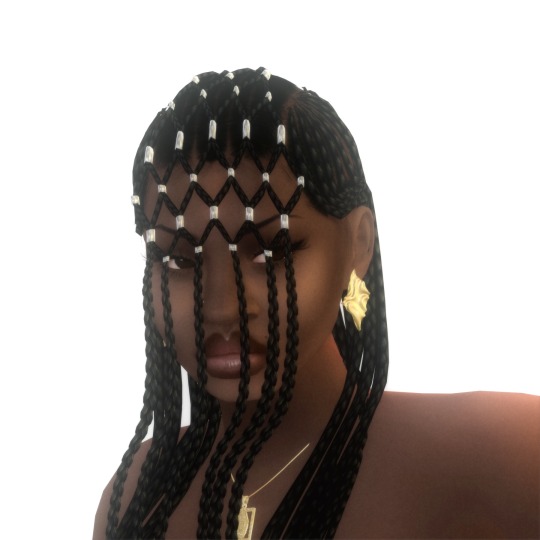
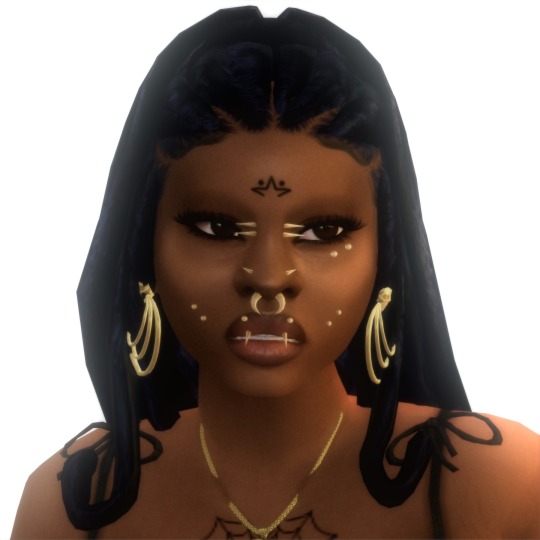
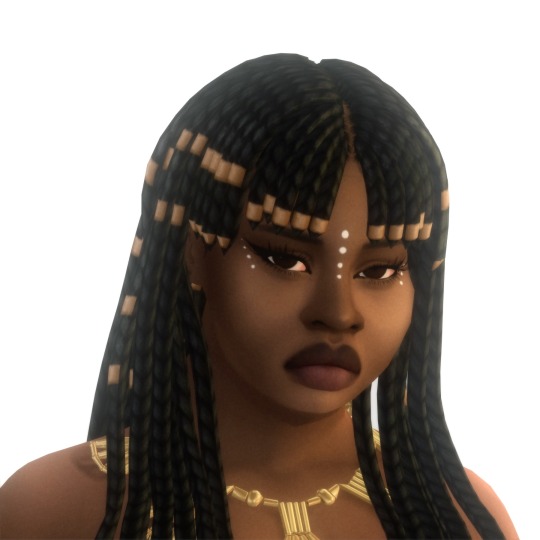
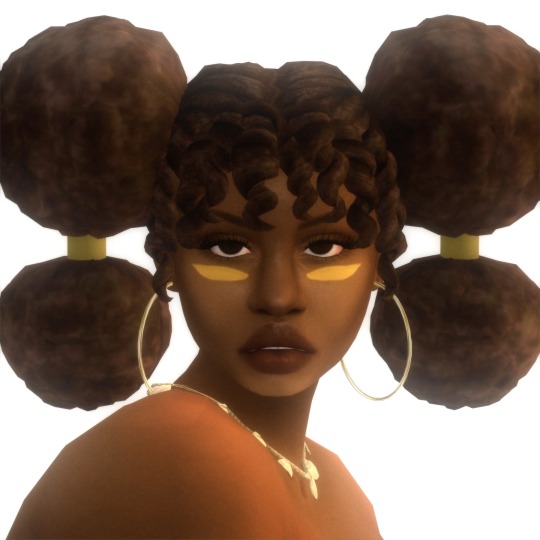
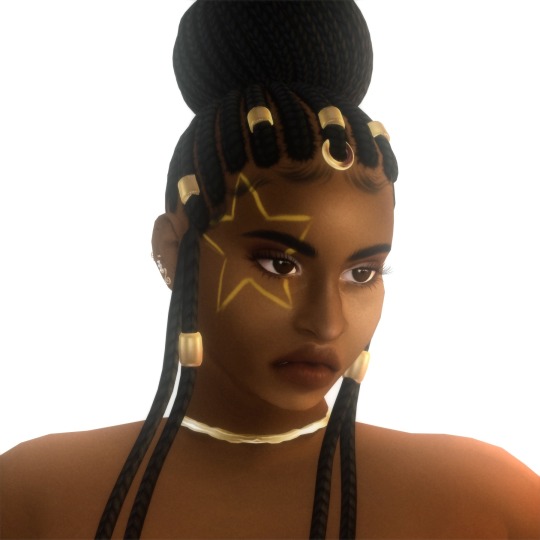
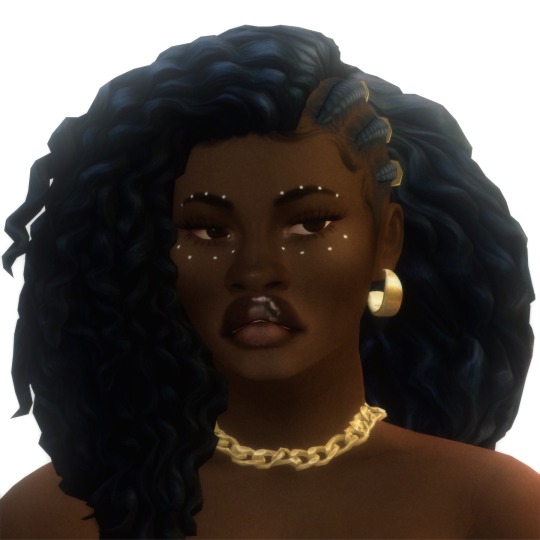
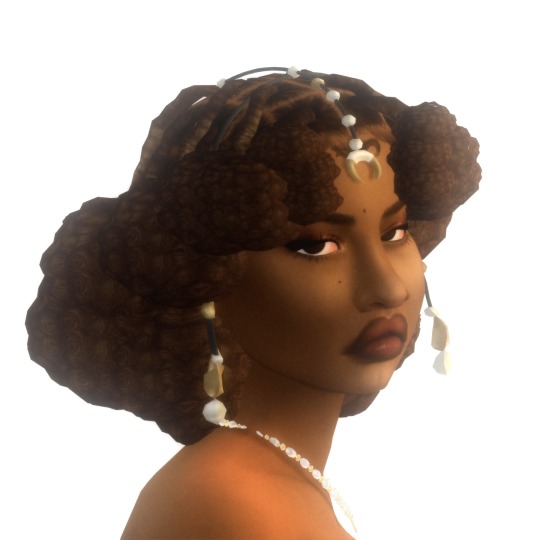
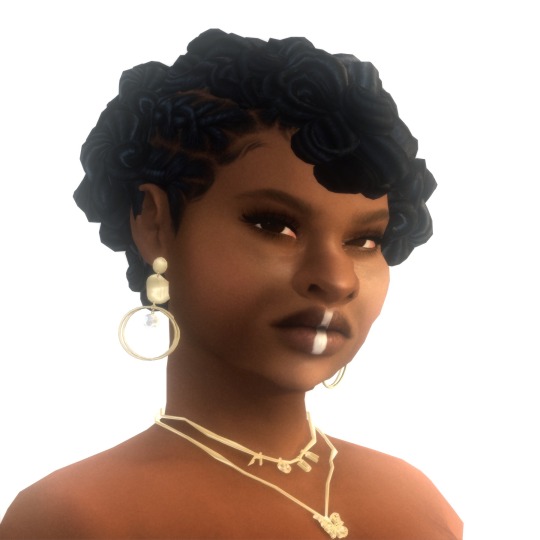
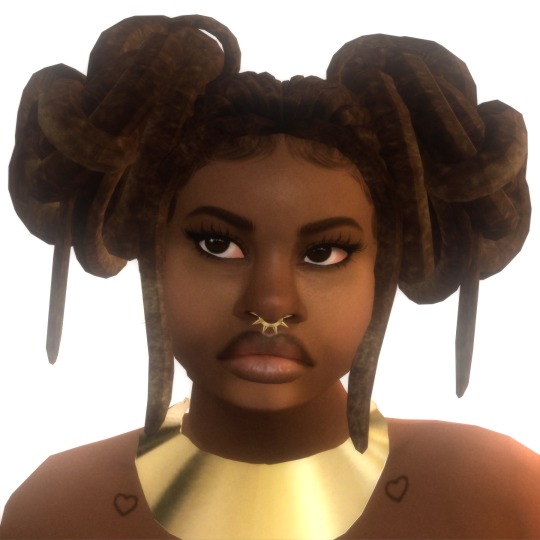
afrofuturism🪐
☆ one ~ solange hair by darknightt (tsr warning) ☆ two ~ loretta hair by @simtric ☆ three ~ bahati braids by @sheabuttyr ☆ four ~ isonoe hair by octetsica ☆ five ~ binah braids by @sheabuttyr ☆ six ~ cornrows & curls hair by @leeleesims1 ☆ seven ~ indie hair by @sashima ☆ eight ~ loc petals by @shespeakssimlish ☆ nine ~ mnemosyne hair by octetsica ☆
mini dedication essay to black simmers and ts4 creators below! pls read if you have the chance! <3
this edit is a small homage to afrofuturism and the various unique black hairstyles (and especially the black creators of most of these hairs) that i have downloaded and admired over the years! some of these are old and some of these are new.
to me, afrofuturism means constantly honoring/reclaiming/challenging the past while constantly creating/dreaming of a better society/world/future. a society/world/future that embraces and empowers all of our differences, ingenuity, aspirations, and unique lived/cultural experiences. a society/world/future that does not limit us through the various systems of marginalization and oppression (racism, homophobia, transphobia, fatphobia, sexism, xenophobia, ableism, classism, colorism, etc.) that often affects how we, as black people, live today.
blackness is so diverse and intricate yet it's always been a struggle to find my culture within a game that's known for being so limiting, bland, and extremely eurocentric when it comes to hairstyles, clothing, food traditions/events, etc. black simmers have always had to figure out how to make this game more inclusive and make it resemble either more like how our ancestors lived, how our current lives are, or how we would want our lives (and even our children's lives) to look like in the future no matter how dystopian the real world look and feel now. fortunately, these hairs and their uniqueness bring a huge sense of culture and style to this game. they have always inspired me and made me feel extremely proud to a part of the lovely african diaspora (and the ever-growing black simmer community).
in a way, being a black simmer and cc creator usually means that we are often digitally creating our own worlds as afrofuturists to varying degrees (whether we know it or not) every time we open our game, make our sims, make houses, and/or make black cultural cc. also, now i know that cc making is not easy to do and is extremely time-consuming so this post is also just me giving all black cc creators especially those who create for free their well-deserved flowers! here are some other black cc creators who created cc that have greatly impacted my game since i first started playing sims 4: @/leeleesims1 @/simtric @/hi-land @/yuyulie @/sims4bradshaw @/ebonixsims @/xmiramira @/sheabuttyr @/qwertysims @/oplerims @/sleepingsims @/shespeakssimlish and so many more im forgetting probably (im too shy rn to tag ppl but i greatly appreciate y’all fr i hope y’all telepathically get this message somehow 😭).
last but not least, i am hoping that this inspires somebody to keep creating or start creating regardless of what they think their skill level is! somebody will absolutely fall in love with your work and/or your art/work will 100% change someone's game forever <333
#ts4#sims 4#the sims 4#black simblr#black simmer#ts4 edit#🪐#🪐 black hair#soleil jones#xolani souza de oliveira#angela evans#leona morrison#chantelle diang#ayesha solomon#nylah rivers#something to end black history month with!#i really hope my essay make sense 😭😭😭#i planned to this last year but hated the pictures i took so i scraped it and redid it#i couldn’t thank enough to all the black cc creators before me and hope to help/inspire new black cc creators 🙏🏾#this is also kinda the updated version of my for the culture post…i made sure to include some familiar (but updated) faces 😭☝🏾💗🙈
711 notes
·
View notes
Text
New Video: JOVM Mainstay Mariaa Siga Shares Uplifting "Le murmure des anges"
New Video: JOVM Mainstay Mariaa Siga Shares Uplifting "Le murmure des anges" @mariaasiga @heygroover @romainpalmieri @DorianPerron
Mariaa Siga (born Mariama Siga Goudiaby) is a Senegalese singer/songwriter, musician, and JOVM mainstay, who can trace the bulk of the origins of her music career to winning a local talent show, where she caught the attention of acclaimed Senegalese act Joan of Arc. Joan of Arc’s frontperson mentored the young Goudiaby, helping her refine her style and further develop her musical skills. Shortly…
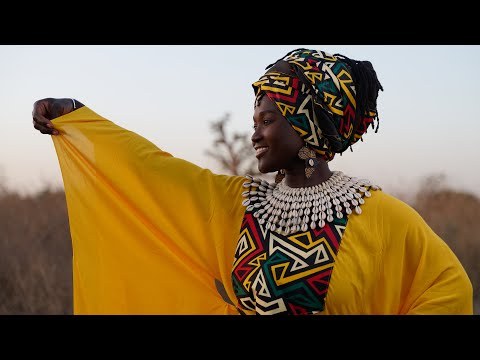
View On WordPress
#African Diaspora Music#African music#afro pop#Le murmure des anges#Mariaa Siga#Mariaa Siga Asekaw#Mariaa Siga Asekaw LP#Mariaa Siga Ya same none#music#music video#New Video#reggae#singer/songwriter \#video#VIdeo Review: Le murmure des anges#Video Review: Mariaa Siga Le murmure des anges#women who kick ass#world music
4 notes
·
View notes
Text
*sigh* Featurism...

So, I woke up to this shit on the Twit app and I've only hit on this issue before, but today I'm digging in.
Colorism is something that is not addressed often enough, but intersected within that and even more rarely spoken about, is the issue of featurism.
The young actress above just got cast as Juliet in the latest big staged prestige production of Romeo and Juliet, opposite Tom Holland. And as usual the blue-checks, everybody else including "black", and even Black regulars are all-in on the cruelty.
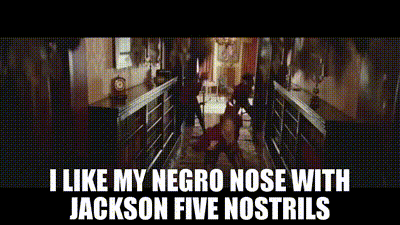
...But I want to breakdown a nuance that is too often skipped over when this happens. The two people named with her, give away the featurism game, here; a particularly nasty form of often internalized racism.
I guarantee if the young actress looked like this?
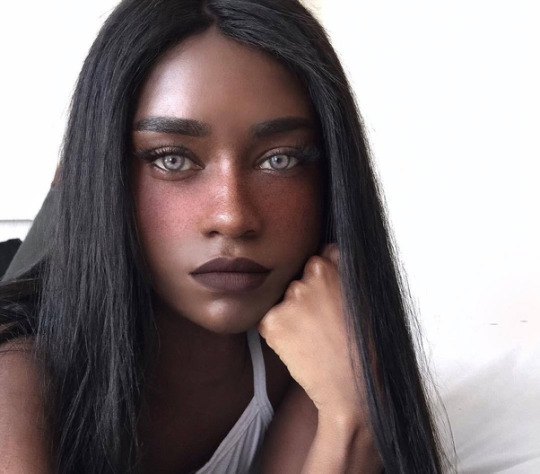
She'd definitely still get racist attacks, but the particularly nasty shit I'm seeing attacking her looks wouldn't come. In fact, I could see some people thinking they are defending her with "but she's pretty!" or more specific... "obviously she's mixed" comments.
-Something pretty much every Black woman with features that don't align with a narrow perception of blackness hear often (and we'll get to why I specified women in a minute).
And don't get it twisted...
These aren't exclusively nor standard white features either (see: the many ethnic features w/in white ethnic groups that also get hit to a lesser and non-racialized degree such as large "hook" and/or Romanesque noses for example, which is definitely about anti-semitism, anti-Romani sentiment, and other disparaged/discriminated against ethnic minorities in Europe) and yes, blue eyes are naturally occurring within non-mixed and dark-skinned Black people due to a mutation called Waardenburg syndrome.
But there is a REASON why fetishizing even certain ethnic features within the African continental diaspora has been a thing for a long time...i.e. "the dopest Ethiopian" from the Tribe Called Quest lyric is pictured as this:
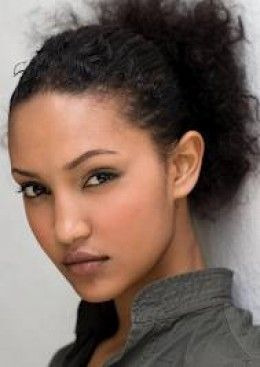
and this:

and not this:
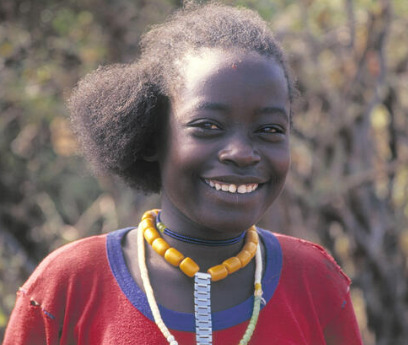
...despite them all being Ethiopians of various tribal ethnicities.
A wide-nose, a tighter curl, coil, or zig-zag pattern of hair, fuller lips and often, but not always (because I've given examples above where features "mitigate" skin color) darker skin.
Zendaya is grouped with Tracey and Francesca Amewudah-Rivers, despite being both lighter in skin color and having a Black parent and a white parent because her nose isn't what has become the standard surgical look...that too many celebs have.
This includes the ones who got so-called "ethnic" work or just a slight 'refinement'. No, her nose is born w/it, made for that good African air, as I call it. Nostrils prominent, nose bridge wide:
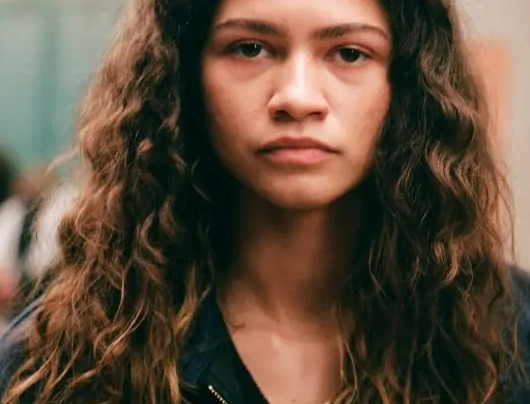
I went make-up free as well, because even make-up practices these days, go for that narrowing highlight technique i.e. just below it's subtle.
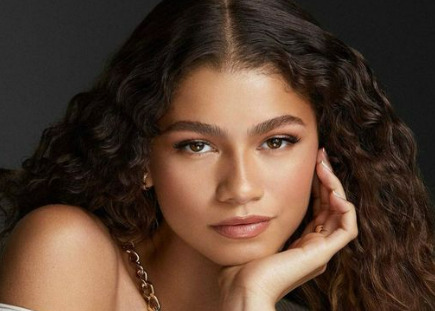
Sza is a an example of it taken to extremes, even with the Hollywood standard "ethnic" refinement she did get.

The thing is... I don't blame or attack her for that. Because you see above that is just a taste of what happens.
Lil' Kim was relentlessly bullied by the men in her life for her ethnic features for her whole life...and that is why she is off-limits to this day for me when it comes to all the work she's had done.
...And this is where I explain why I specified men being mostly exempt. It's because "Blackness" including all the physical features associated with it, is by default masculinized.
...Which is why Idris Elba is considered one of the most handsome men in the world, w/o the caveats that even Lupita Nyong'o often gets.
Nobody calls Samuel L. Jackson ugly. He is even idolized and fetishized by a specifically white male gaze for how culturally "Black" he is perceived to be for all the wrong reasons, his signature "motherfucka" for example (and I could go off on a whole other tangent here, but digressing).
All this to say... Featurism sucks. It's not talked about enough.
Blackness in all variations is Beautiful.
Tracy Chapman looking as young she does?? Hell, mark it down to both her dark skin (a natural UV protector) and not messing with her given features (and being a lesbian, men will age you. lol -I got jokes-):

P.S. THANK GOODNESS for Tems and her rising prominence as a beauty as well:


P.P.S. Even Jay-Z the billionaire rapper has had the comments over the years about his lips and nose, hence that lyric in Beyonce's Formation.
#featurism#I only just scratched the surface#but man this shit needed to be scratched#colorism#racism#meta#tom holland#romeo and juliet#tracy chapman#lil kim#tems#jay z#sza#zendaya#francesca amewudah-rivers#francesca amewudah rivers
226 notes
·
View notes
Text
youtube
🥗🏛️Meet Abdul Tubman, whose great-great-aunt is the famous Harriet Tubman. Paul praises Abdul's improvement in health and fitness since his last interview, and he goes into detail about his clean eating and training program. Abdul discusses his family's history, which dates back to Liberia, and his great-grandfather's important political role.
🗽🗣️Abdul talks about his upbringing in Liberia and the formation of a new government after formerly enslaved people returned to the country. His great-grandfather was president for an incredible 28 years. Then Abdul discusses his life in New York, emphasizing the city's energy and impact on his work.
🌍⚖️He explains how millionaires like Jeff Bezos can contribute to societal transformation. Abdul highlights the necessity of long-term, effective change, addressing issues such as corporate dominance in governance and equal economic distribution.
🤝🕊️Abdul discusses his latest project, an instructional program delving into African-American history, particularly slavery and the Underground Railroad. The program aims to promote cultural interchange and close the knowledge gap about the African diaspora. Abdul conveys his desire to effect good change and promote hope and love in pursuing a brighter future.
🤲❤️He discusses the need for self-reflection, starting change from the inside, and time as a significant resource. He encourages people to accept responsibility for their actions and become the change they want to see in the world. The podcast concludes with a discussion of the importance of community and unity in making a lasting influence.
223 notes
·
View notes
Text
AFRICAN VOODOO
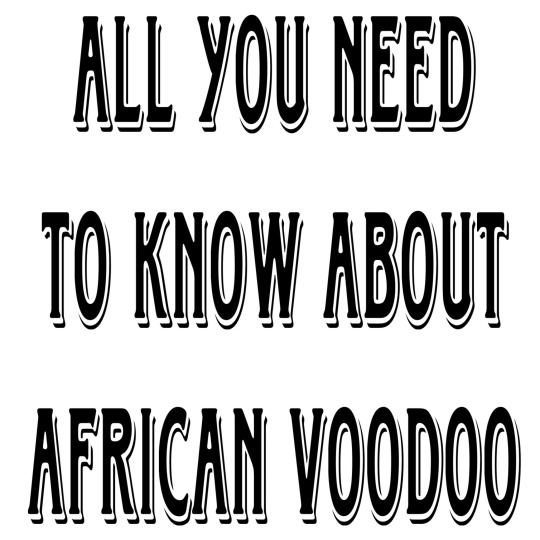
The deep truth about AFRICAN VOODOO
African Voodoo: Unraveling the Mysteries of a Rich Spiritual Tradition
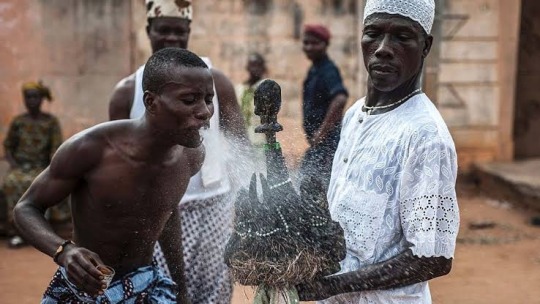
African Voodoo, often shrouded in mystery and misconceptions, is a complex and fascinating spiritual tradition with deep-rooted cultural significance. This ancient belief system, practiced in various forms across the African continent and the African diaspora, offers a unique perspective on the relationship between humans, nature, and the divine. In this article, we will delve into the world of African Voodoo, exploring its history, beliefs, rituals, and its enduring impact on the cultures and societies where it thrives.
A Diverse Tradition
Voodoo, also spelled Vodou or Vodun, is not a monolithic belief system; rather, it is a diverse and adaptable spiritual tradition that has evolved differently in various regions of Africa and beyond. Its origins can be traced back to the indigenous religions of West and Central Africa, where it was practiced by different ethnic groups. Over time, African Voodoo underwent syncretism with Catholicism and indigenous beliefs in the Caribbean, particularly in Haiti, giving birth to Haitian Vodou, which is perhaps the most well-known form of Voodoo.
Core Beliefs
At its core, African Voodoo centers around the veneration of spirits, ancestors, and deities. These spirits are believed to have the power to influence human life and the natural world. Each spirit has a specific domain, and practitioners seek their guidance and assistance through various rituals and offerings. Ancestor worship is a fundamental aspect of Voodoo, as it connects the living to their familial lineage and heritage.
The Loa, or spirits, are a central focus of Voodoo ceremonies. These spirits are intermediaries between humans and the ultimate divine force. Practitioners often enter trance-like states to communicate with the Loa, who possess them temporarily during rituals. The Loa are known for their distinct personalities and preferences, and offerings such as food, drinks, and dance are made to appease and honor them.
Rituals and Practices
Voodoo rituals are colorful and lively events filled with drumming, dancing, singing, and the use of symbolic objects. Rituals are often held in temples or outdoor spaces, and they vary widely depending on the specific tradition and purpose. Some rituals are celebratory, while others are intended to seek protection, healing, or guidance.
One of the most famous Voodoo rituals is the "Voodoo Doll," which is often misunderstood. These dolls are not meant for causing harm but are used as tools for healing or connecting with a specific person's spirit. Pins may be used symbolically to focus intention.
Voodoo in the African Diaspora
The transatlantic slave trade played a significant role in spreading African Voodoo to the Americas, particularly in regions like Haiti, New Orleans, and Brazil. In these places, Voodoo underwent further syncretism with local beliefs and Catholicism, resulting in unique variations of the tradition.
Haitian Vodou, for instance, is a vibrant blend of African Voodoo, Catholicism, and indigenous Taino beliefs. It has had a profound impact on Haitian culture and played a central role in the struggle for independence from colonial rule.
Misconceptions and Stereotypes
African Voodoo has been the subject of many misconceptions and stereotypes, often portrayed negatively in popular culture. These portrayals frequently focus on the more sensational aspects of Voodoo, such as curses and zombies, rather than its rich cultural and spiritual dimensions. It's important to recognize that Voodoo is a legitimate religious practice for millions of people, and like any belief system, it encompasses a wide range of beliefs and practices.
African Voodoo is a complex, multifaceted spiritual tradition with a deep and enduring cultural significance. It is a testament to the resilience of African heritage and the ability of beliefs to adapt and evolve over time. Beyond the stereotypes and misconceptions, Voodoo represents a profound connection between humans, nature, and the divine—a connection that continues to shape the lives and cultures of those who practice it.
Communication with the spirits, often referred to as Loa or Lwa in Voodoo, is a central aspect of Voodoo rituals and practices. Here's an overview of how practitioners communicate with these entities:

1. **Rituals and Offerings**: Voodoo rituals are the primary means of communication with the spirits. Practitioners gather in a designated sacred space, such as a temple or outdoor altar. They often create an elaborate ritual environment with symbols, candles, and ceremonial objects. Offerings, including food, drinks, tobacco, and other items, are presented to specific spirits to gain their favor and attention.
2. **Dance and Music**: Music and dance are essential elements of Voodoo ceremonies. Drumming and chanting create a rhythmic and trance-inducing atmosphere. Through dance and music, practitioners enter altered states of consciousness, allowing them to connect with the spirits more profoundly. It is believed that the spirits may possess individuals during these ceremonies, providing a direct channel for communication.
3. **Possession and Trance**: One of the most distinctive aspects of Voodoo rituals is the concept of spirit possession. Practitioners, often referred to as "servants of the spirits," may enter a trance-like state during which a particular Loa or spirit is believed to take control of their body. In this state, the possessed individual may speak in the voice of the spirit, offering guidance, advice, or requests on behalf of the spirit.
4. **Divination**: Divination is another way to communicate with the spirits in Voodoo. Practitioners may use various divination tools such as tarot cards, cowrie shells, or casting of objects to seek guidance from the spirits. These divination practices help practitioners understand the desires and intentions of the spirits and may provide insights into their own lives.
5. **Prayer and Invocation**: Voodoo practitioners often use prayer and invocation to establish a connection with the spirits. Specific prayers or invocations are recited to call upon a particular spirit's presence and assistance. These prayers are typically passed down through generations and may be spoken in a specific language or dialect.
6. **Voodoo Dolls**: Contrary to popular misconceptions, Voodoo dolls are not used for causing harm but are symbolic tools for communication. They can represent a specific person or spirit and are employed in rituals to convey intentions, requests, or healing energy to the spirits associated with them.
It's important to note that communication with the spirits in Voodoo is a deeply spiritual and cultural practice, and the methods may vary among different Voodoo traditions and communities. Voodoo practitioners believe that these rituals and practices maintain a reciprocal relationship with the spirits, offering offerings and devotion in exchange for protection, guidance, and assistance in various aspects of life.
Masquerades and Voodoo in Africa: A Cultural Tapestry of Spiritual Expression
Africa is a continent rich in cultural diversity, and its spiritual practices are as varied as its landscapes. Among the many vibrant traditions that permeate African culture, masquerades and Voodoo (often spelled Vodun or Vodou) hold significant places in the hearts and lives of its people. This article explores the fascinating intersection of masquerades and Voodoo, shedding light on how these practices are intertwined with African spirituality.
**Masquerades: The Embodiment of Spirits**
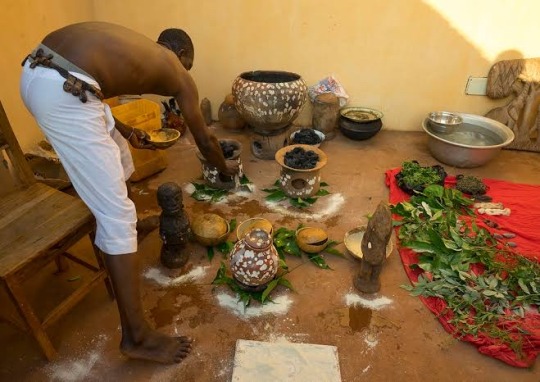
Masquerades are a prominent cultural phenomenon across Africa, characterized by elaborate costumes, masks, and dances. These performances serve multifaceted purposes, including entertainment, social commentary, and spiritual expression. However, it's the latter aspect, the spiritual dimension, that ties masquerades to Voodoo and other indigenous African belief systems.
1. **Role of Ancestors**: In many African cultures, masquerades are a means of connecting with ancestors and spirits of the deceased. The masks and costumes worn by performers often represent these spirits. During masquerade ceremonies, participants believe that the spirits inhabit the masks and interact with the living. This interaction serves as a way to honor and seek guidance from the ancestors.
2. **Protection and Cleansing**: Some masquerades have protective roles in communities. They are believed to ward off evil spirits, illnesses, or other malevolent forces. These masquerades often perform purification rituals, symbolically cleansing the community and its members.
3. **Harvest and Fertility Celebrations**: Masquerades are frequently associated with agricultural and fertility rites. They may perform dances and rituals to ensure a bountiful harvest or to promote fertility among the community members.
4. **Social Order and Governance**: Masquerades also play a role in enforcing social norms and maintaining order within communities. They may act as judges, mediators, or enforcers of communal rules during their performances.
**Voodoo: The Spiritual Heartbeat**
Voodoo, a widely practiced religion across West Africa and its diaspora, is deeply entwined with masquerades and the spiritual fabric of the continent.
1. **Ancestor Worship**: Voodoo places a significant emphasis on ancestor worship, much like masquerades. Practitioners believe that the spirits of ancestors are ever-present and can influence the living. Offerings, rituals, and masquerade performances are ways to honor and seek the guidance of these spirits.
2. **Connection to Nature**: Voodoo, like many African belief systems, recognizes the close relationship between humans and nature. It views natural elements, such as rivers, forests, and animals, as inhabited by spirits. Masquerades often incorporate nature-centric symbolism in their performances.
3. **Trance and Possession**: Both Voodoo and certain masquerades involve altered states of consciousness. In Voodoo, devotees may enter trances and become possessed by spirits, similar to the possession experiences during some masquerade ceremonies. These states facilitate direct communication with the divine.
4. **Rituals and Sacrifices**: Offerings and sacrifices are common in both Voodoo and masquerade traditions. These rituals are believed to appease spirits and seek their favor.
**Cultural Resilience and Transformation**
While masquerades and Voodoo have endured the test of time and colonization, they have also adapted and evolved. In the African diaspora, especially in the Americas, they fused with other cultural elements and religions, giving rise to unique traditions such as Haitian Vodou and New Orleans Voodoo.
masquerades and Voodoo in Africa are vibrant expressions of spirituality, culture, and identity. They are living traditions that continue to shape the lives and beliefs of countless individuals and communities, offering insights into the enduring resilience and adaptability of African cultures in the face of change and adversity.
The timing for Voodoo practices, like many spiritual traditions, can vary depending on the specific tradition, the purpose of the practice, and the preferences of the practitioner. There is no universally "best" time for Voodoo practice, but certain times and occasions are commonly observed:
1. **Festival Days**: Many Voodoo traditions have specific festival days or holidays when practitioners gather to perform rituals and ceremonies. For example, in Haitian Vodou, the Festival of the Ancestors (Fèt Gede) is a significant event where people honor and communicate with their ancestors. These festivals often have fixed dates in the Voodoo calendar.
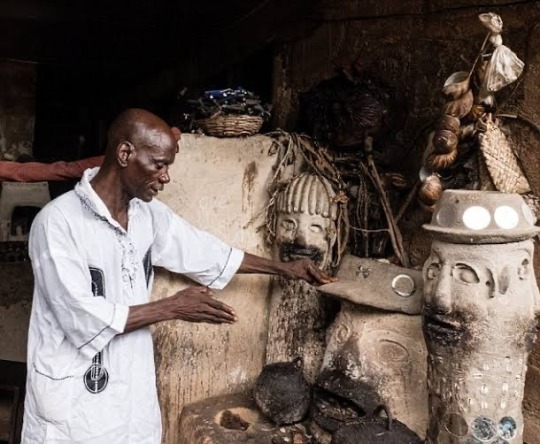
2. **Full Moon and New Moon**: Lunar phases are significant in various spiritual practices, including Voodoo. Some practitioners prefer to conduct rituals during the full moon or new moon, believing that these phases are particularly potent for spiritual work. The full moon is often associated with amplifying energy and intentions, while the new moon is seen as a time for new beginnings.
3. **Nighttime**: Many Voodoo rituals take place during the nighttime. This is believed to be a time when the veil between the spiritual and physical realms is thinner, making it easier to communicate with the spirits. Candlelit ceremonies, drumming, and dancing are common elements of Voodoo rituals conducted at night.
4. **Personal Preference**: Individual practitioners may have their own preferred times for Voodoo practice based on their personal experiences and beliefs. Some may feel a stronger connection to the spirits during specific times of the day or year.
5. **Life Events**: Voodoo is often integrated into various life events such as births, marriages, and funerals. The timing of these rituals is determined by the occurrence of these events.
6. **Consulting a Voodoo Priest/Priestess**: For more specific guidance on the timing of Voodoo practices, consulting a Voodoo priest or priestess is advisable. They can provide insights based on their knowledge and experience within their particular Voodoo tradition.
It's essential to remember that Voodoo is not a monolithic practice; it encompasses various traditions and regional variations, each with its own customs and beliefs. Therefore, the best time for Voodoo practice can differ significantly from one tradition to another. Additionally, Voodoo is deeply rooted in cultural and spiritual contexts, so practitioners often follow the customs passed down through generations within their specific communities.
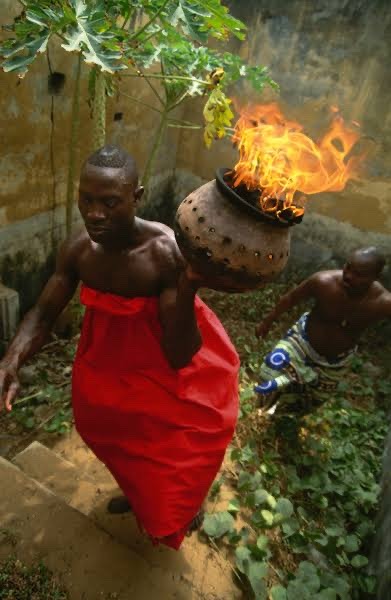
#life#animals#culture#aesthetic#black history#history#blm blacklivesmatter#anime and manga#architecture#black community#heritagesites#culturaltours
258 notes
·
View notes
Text

Hi tumblr! I figured I would reintroduce myself here, since I have decided tumblr is simply my favorite place to share online *still* to this day.
My name is Odera and I am a painter and illustrator!
The main places you can find me are here, my side blog @burritobowlofthepelvis, my website, and @ oderaigbokwe on IG.
I'm physically located on the unceded ancestral territories of the Musqueam, Squamish, and Tsleil-Waututh nations (aka known as Vancouver Canada).


Alot of my work centers the magic of the African diaspora and the Black Queer Imagination. The foundational years of my career were complimentary to Black speculative works, Afrofuturism, and Fantasy as a gateway to healing. This has since grown to explore the spirit based, ancestral work of the diaspora, and most recently I have been combining it all and trying to find that magic in the physical, daily, embodied things.
My side blog is @burritobowlofthepelvis which I am slowly but surely reorganizing. This blog is filled with reblogs for inspiration, potential reference images, more casual glimpses of my life, selfies, and outfits of the day. (Some of the reblogs are NSFW, so minors DNI there). Ultimately I am trying to use that blog as a combination journal/resource for my sketchbook.
Below are some of my favorite paintings and illustrations over the years that give an idea of the kinds of things I am exploring or have done throughout my career.

The Spirit Child. 2022. Oils on board.
This painting is the centerpiece of my series of Tarot/Oracle/Afrodiasporic Divination paintings. The series is slowly but surely coming together, and once I get to the minor arcana I am excited to make some stylistic shifts that not only match the messaging but are also much faster to make.
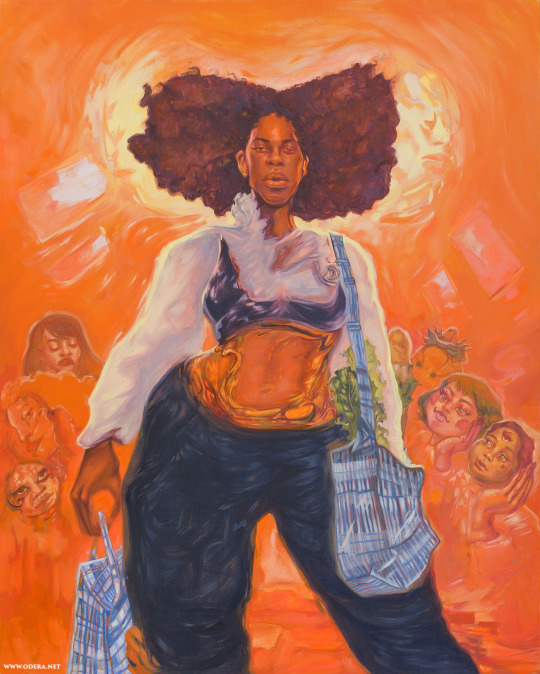
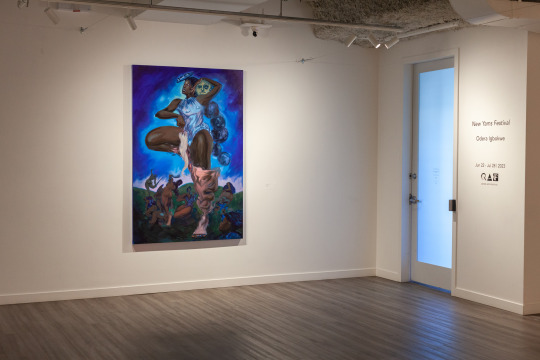


Selections from my solo exhibition 'New Yam Festival'. These paintings are all big, juicy, vibrant, improvisational, and embody the playfulness, pleasure, and joy of the Black Queer imagination! Up until that point I was working mostly at a smaller scale (anywhere from 8x10 to 20x30 inches). So it was fun to size up to 6-8 feet for each of these!
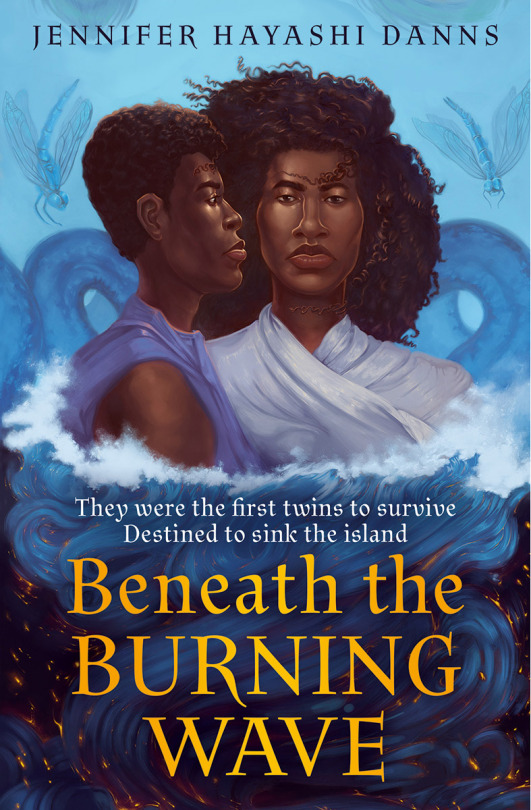
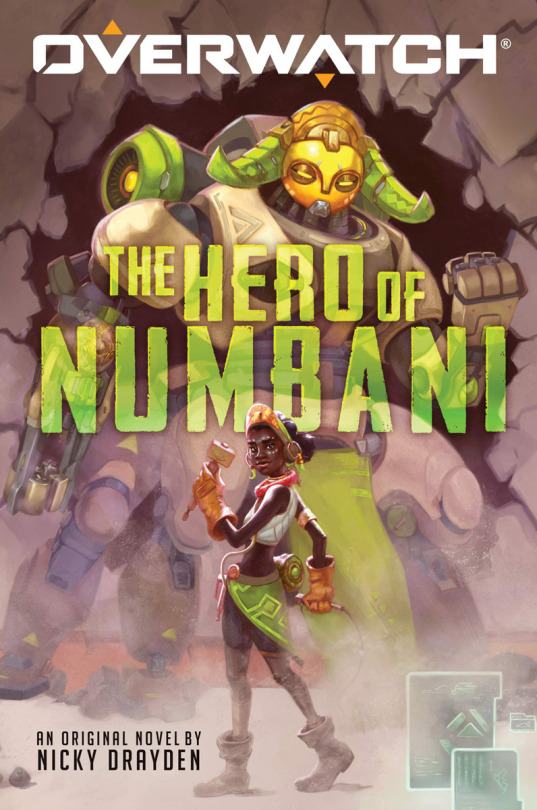
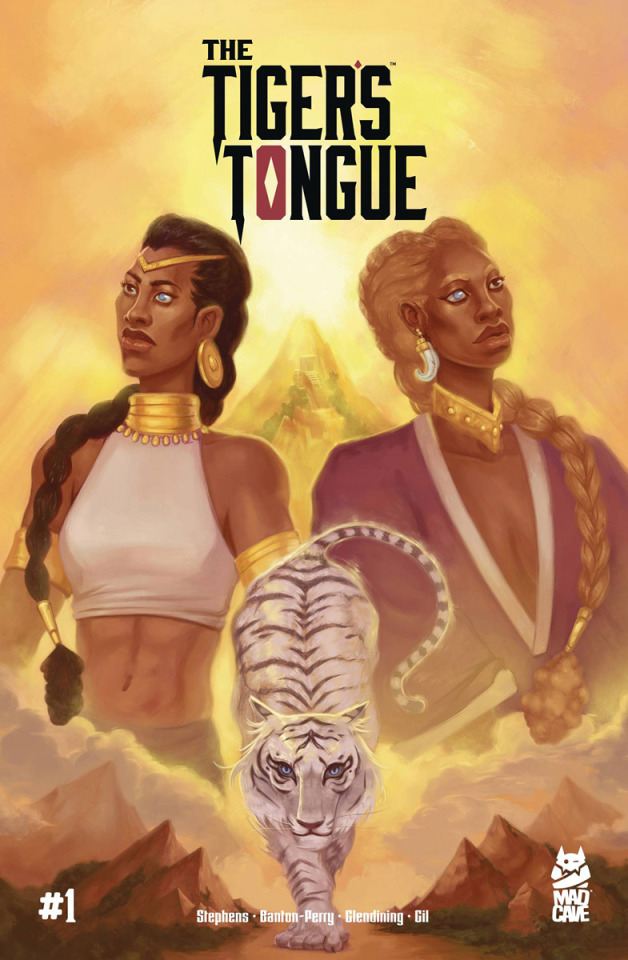
Above are some of my favorite commercial illustrations for book covers and comics. Covers are their own particular fun design challenge, but of all the illustration assignments they can feel the most fulfilling to me.
And something classic from the archive: Odera Redesigns the cast of Sailor Moon.
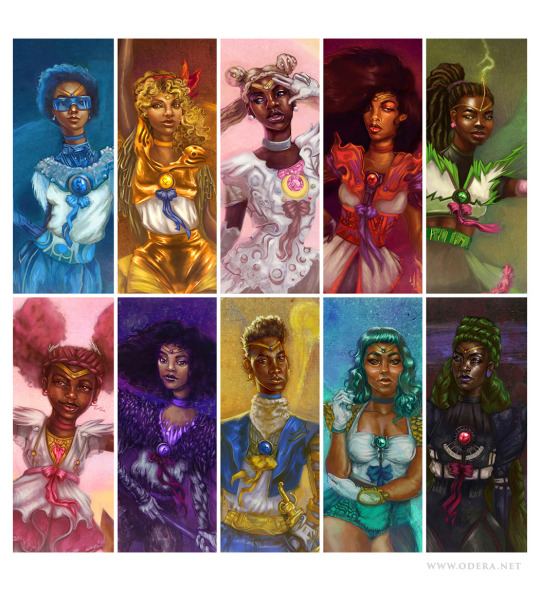
I can't believe most of those were created almost 10 years ago. But that's where we are, and it feels good to still want to use this platform despite how much the world is changing.
Feel free to reblog, like, comment, or ask me any questions you have!
119 notes
·
View notes